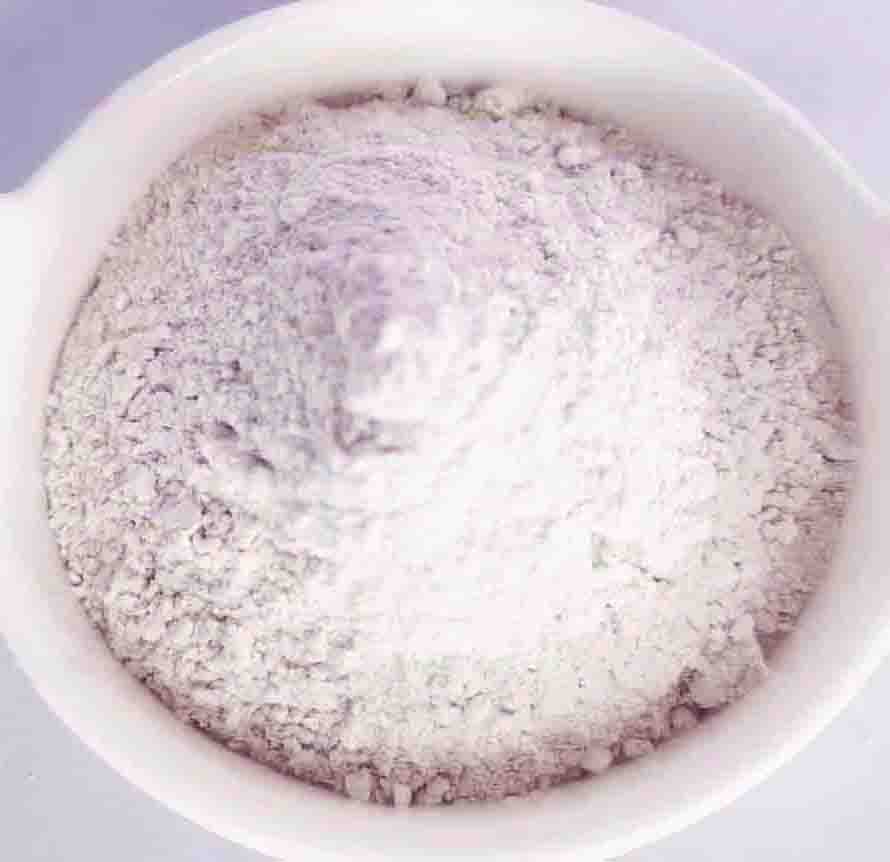Bentonite for Drilling Fluids
In this article, we mainly introduce organic bentonite, which has different characteristics and applications in paint, but in fact, our main business is still oilfield drilling. We have corresponding products to recommend to you that use different types of organic bentonite in different base oils around the world.
They are all modified organic bentonite and are suitable for use in different polar and different base oils.Bentonite can reduce your production costs and improve the performance of the entire formula, especially in terms of suspension, rheological properties, and other unexpected gains.
Bentonite for Drilling Fluids
Introduction to Organoclay
In paints and coatings, organoclays are used as rheological additives to improve the flow qualities, sag resistance, and anti-settling features of the material. The organoclay materials offered by Zhejiang Camp Shinning make it possible for pigments to be dispersed more effectively, which in turn leads to superior color development and an overall improvement in the performance of coatings.
Organoclays are synthetic materials that are derived from naturally occurring clay minerals like montmorillonite and bentonite. The clay surfaces of these minerals go through a process called as organophilization, in which they are changed with organic molecules, most often quaternary ammonium ions. This change bestows distinctive qualities onto the organoclays, including increased rheological control, greater thickening efficiency, and exceptional suspension capabilities, to name just a few.
What is the Purpose of Organoclay Thickeners in Paint?
When we add organoclay to the paint, it becomes thicker and less likely to flow. The better thickness of the paint makes it easier to apply and prevents it from spreading too much or dripping, especially on surfaces that are upright. When the paint becomes thicker, it helps to spread it evenly and uniformly, resulting in a consistent paint thickness.
Organoclays are used in paints and coatings to enhance their flow properties, prevent sagging, and improve their ability to resist settling. The organoclay products from Zhejiang Camp Shinning help to disperse pigments more effectively, which leads to better color development and overall performance of coatings.
What are the Different Types of Paint Thickeners?
The desired qualities and application criteria of the paint formulations may be utilized to direct the selection of the many kinds of paint thickeners, each of which offers certain advantages.
1. Organoclays
Organoclays are an extremely popular use as paint thickeners. These clays have had their structure altered by the application of organic molecules. Paint compositions benefit from the use of organoclay since it increases viscosity and increases stability. During the application process, they serve to avoid sagging and leaking, as well as enhance the flow behavior of the paint. Also, organoclays, especially the ones from Zhejiang Camp-Shinning is affordable compared to other paint thickeners available in the industry.
2. Hydrogenated Castor Oils
Hydrogenated castor oil is a waxy compound obtained through the hydrogenation of refined castor oil. It is commonly used as a slip additive in paints, plastics, and inks. It also functions as a dispersing agent in carbon papers, plastic color master batches, and ink formulations. Additionally, it can serve as a dispersing additive and flow control agent in sealants, hot-melt adhesives, powder coatings, and more.
3. Polyamides | Bentonite for Drilling Fluids
These are high-performance coatings that are semi-transparent and are designed to preserve wood surfaces that are exposed to the elements. They provide protection against the damaging effects of water, mold, and ultraviolet light. Polyamides are often utilized in wood treatments because of their ability to increase durability while still maintaining the wood’s natural beauty.
4. Silicas |Bentonite for Drilling Fluids
Another kind of thickener that is often used in oil-based paint formulations. Due to the fact that it has a little effect on the color of drying oil, it may be used without significantly altering the overall color hue. When employed in formulas, silica has a rather firm texture, which, when combined with other ingredients, may impart a noticeable texture on the surface of the paint.
Bentonite for Drilling Fluids
Advantages of Using Organoclay as a Thickener in Paint Formulations
Organoclay is a substance that paint manufacturers find helpful in controlling the thickness and flow of their paint formulations. By using this approach, you can avoid the paint from drooping, dripping, or running while you are applying the paint. By doing this, you’ll have more precise control over the paint, and it will enhance the overall look of your project. This product is designed to make it easier for you to apply paint by helping to level it out. This results in a smoother and more even finish, whether you’re using a brush or a roller.
Organoclay-based thickeners are useful in improving the stability and durability of paint formulations. These substances help prevent pigments, fillers, and other components from settling and separating, even when they are exposed to varying temperatures and shear conditions. When paint is stable, it can last longer on the shelf. This means that the quality of the paint remains consistent over time. Many types of paint systems work well with organoclay thickeners. You can add these to different types of paint without any impact on the paint’s performance or other characteristics.
Types of Paint That Uses Organoclay
Bentonite for Drilling Fluids
Organoclay-based thickeners find application in a wide range of paint types. Here are some common types of paint that utilize organoclay:
1. Acrylic Paint Thickener
Zhejiang Camp-Shinning’s organoclay is specifically formulated to enhance the thickening efficiency in synthetic and other organic fluids with medium to high polarity. When incorporated into acrylic paint formulations, this organoclay rheological additive improves viscosity control, allowing for better handling and application of the paint.
2. Oil Paint Thickener
To make it, you mix organoclay smectite with an organic cation. Typically, the quantity of cation utilized falls within the range of 75% to 150% of the clay’s cation exchange capacity. This clay is effective in thickening natural oil systems. If the organophilic clay has a component that occurs naturally, it is more effective in thickening natural oil-based products. The end result is now easier to work with and apply due to improved viscosity control and stability of the oil paints.
3. Latex Paint Thickener
Zhejiang Camp-Shinning CP-180 is a type of organoclay thickener that can be added to latex paint. It has the advantage of being able to disperse well even under high shear conditions. When you combine it with a polar activator, CP-180 works at its best efficiency. Usually, the polar activator makes up around 30% to 40% of the weight of CP-180. Typically, when adding CP-180 to latex paint formulations, the recommended levels range from 0.2% to 2.0%. For optimal outcomes, it is suggested to use a polar activator like 95% ethanol or 95% methanol. When you use a mixture of organoclay thickener and polar activator, it helps to better control the thickness and stability of latex paint formulations.
4. Water-Based Paint Thickener
Specifically designed for water-based systems, the organoclay thickener enhances the viscosity and rheological properties of the paint, ensuring better control during application. It disperses easily in water-based formulations without the need for additional heat or complex mixing processes. The addition levels of the organoclay thickener typically range from 0.2% to 2.0%, depending on the desired viscosity and consistency of the paint.
5. Construction Paint Thickener
In the construction industry, this additive is used to improve the viscosity control and overall performance of construction paint formulations. This product is great at preventing drips and runs when applied on vertical surfaces, thanks to its excellent sag resistance. The use of organoclay thickener in the paint also helps to enhance its leveling properties, which ultimately leads to a polished and even surface. This product works well with different types of construction paint systems, such as indoor and outdoor coatings, primers, and textured paints.
6. Emulsion Paint Thickener
The Zhejiang Camp Shinning CP-EWS is a type of organoclay thickener that is specially made for emulsion paints and is known for its exceptional quality. This substance provides better results when it comes to thickness, clarity, and even distribution. CP-EWS improves the clarity of emulsion paints, resulting in a vivid and distinct color display. The paint has a great ability to spread evenly, which means that the pigments and additives are distributed uniformly. This leads to a consistent color development and better performance of the paint overall.
7. Wall Putty Paint Thickener
The Zhejiang Camp Shinning CP-34 is a specific kind of bentonite clay that has been altered with organoclay. This product is made specifically to be used for wall putty paint applications. It works effectively with different types of solvents, including those with low polarity and those with medium-high polarity. If you add CP-34 to solvent-based wall putty paint, it will enhance the texture and consistency of the paint and keep it stable. This product works wonders in thickening and preventing sagging, making it a breeze to apply on walls and other vertical surfaces.
What is the Common Mixture of Thickening Agent for Paints?
Paints are usually thickened using a combination of sodium bentonite and magnesium oxide. Sodium bentonite is a type of clay mineral that is well-known for its ability to swell and absorb water. This property makes it an excellent thickening agent.
When you add water to it, it becomes thickening gel for acrylic paint etc. On the other hand, magnesium oxide serves as a co-thickener and stabilizer in the mixture. Improving the rheological properties of paint can enhance its stability and prevent it from sagging or dripping. When sodium bentonite and magnesium oxide are mixed together, they work together to create a better result. This means that they can help thicken paint and make it easier to control the flow of the paint. Paint manufacturers often use a combination of thickening agents to achieve the desired thickness and texture in different types of paints.
Bentonite for Drilling Fluids,Regarding the needs of this application field, please contact our sales team in a timely manner. Of course, our technical department will also cooperate with the progress of your experiment to help you achieve your pursuit of the performance of this product. Therefore, if your application field is not in the field of paint and coatings, and if it is used in Bentonite for Drilling Fluids, please contact us boldly, Our bentonite is very popular among customers when used in this system.
We have over 20 years of rich experience in using organoclay for paint and coating , especially in the various types of paint and coatings mentioned above. However, regarding Bentonite for Drilling Fluids, which is currently our largest source of business, our main export proportion is still in Bentonite for Drilling Fluids.


